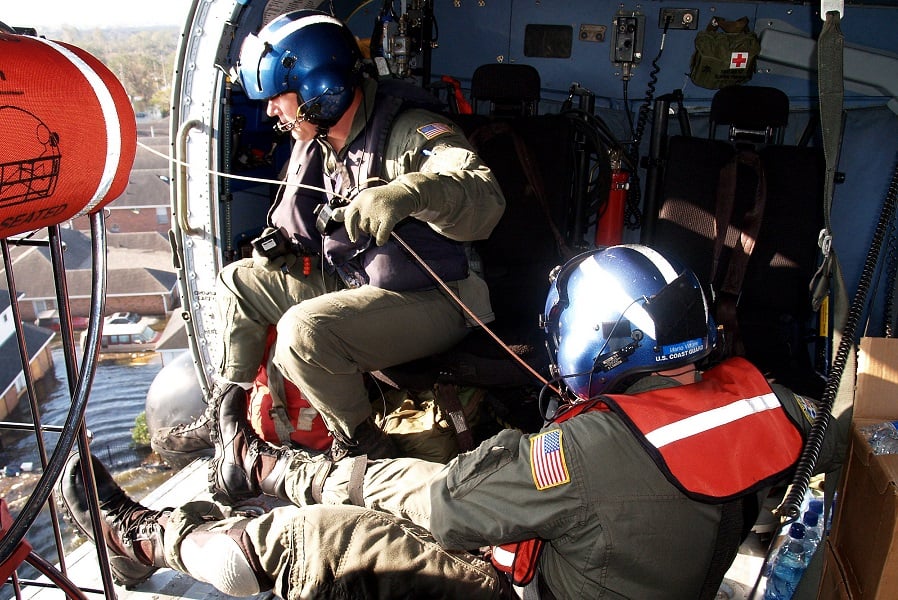As an investment adviser, what lessons can you possibly learn from the U.S. Coast Guard's response to Hurricane Katrina?
Saturday marks the tenth anniversary of Hurricane Katrina, which slammed into New Orleans on Aug. 29, 2005. The Coast Guard
rescued 24,500 people during the first nine days of the crisis, and was one of the few government agencies to put up a coordinated, aggressive and successful response. Following the crisis, Congress
held hearings to determine why the Coast Guard got it right, and why most other first responders failed.
Here are 7 lessons advisers can learn from the Coast Guard's response to Katrina:
1. Simple is preferable to complex when dealing in a dynamic, ever-changing environment. Most clients prefer simple answers and solutions. Their confidence in you will be directly correlated to your ability to provide simple, intuitive solutions and suggestions.
2. Under duress, you will fall to the level to which you have been trained. No matter your level of seniority or experience, your training will be what drives your response to emergencies. Aggressively “sharpen your saw” to ensure that your personal knowledge is up for any task. It's too late to wish you had more training when the chips are down and urgent action is needed.
3. Cross-training is a multiplier. When situations become increasingly challenging, it's beneficial to be able to call on others for assistance. There's a saying that came out of Hurricane Katrina — a crisis is a lousy time to start passing out business cards. Make sure each member of your team can fill in for someone else, and that every service vendor provides you the name, email and cellphone number of your primary and secondary contacts.
(Adviser insights: 7 signs clients look for in trusted advisers)
4. Standardize your procedures. As a corollary to cross-training, every member of your team should approach a particular event or procedure with the same processes, protocol, communications plan and technology. The value of such an approach will become most apparent during the implementation and monitoring phases of your client's investment strategy. Furthermore, if something does go wrong with a client's investment strategy, and years later you're being called upon to reconstruct your actions, there's a greater probability that you'll be able to remember the details of your process.
5. Decision making must be logical and steady. No matter how simple or complex the situation, a well-defined decision-making process needs to be consistently applied. A lack of consistency or transparency will cause clients and staff to lose confidence in your abilities.
6. Track and deliver on promises. Clients have long memories of what you say you're going to do. Keep accurate notes and follow up on promises. If you do so consistently, clients will hold you in higher regard.
7. A well-defined ethos is a critical success factor. Ethos is an ancient Greek word that means the consistency, balance and continuum of three elements — behavior, core values and a defined decision-making framework. When hell breaks loose, a person with a well-defined ethos knows how to greet the devil. The difference between good and a great investment adviser is that a great adviser will have a well-defined ethos.
The Coast Guard shined above all other agencies during one of the most challenging operational responses in the history of the United States. It did so by applying the above lessons. Using these same principles, you can build up client trust and loyalty, and draw upon this reserve when storm clouds begin to build.
Steve Branham is a retired rear admiral in the U.S. Coast Guard, and is one of three co-founders, along with Don Trone and Mary Lou Wattman, of 3ethos, whose research and training programs are focused on the intersection between leadership, stewardship and governance.







